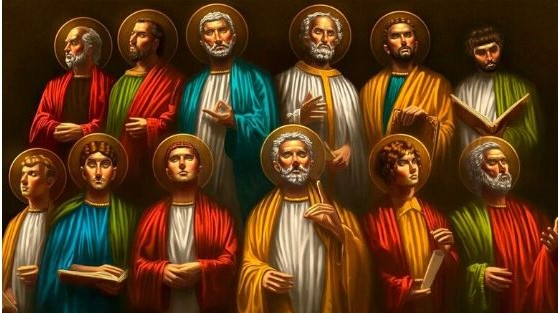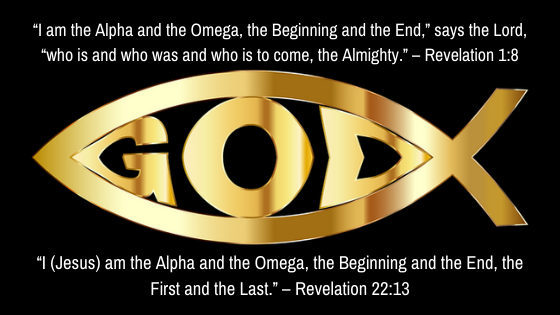We hear this objection all the time: Jesus never really claimed He was the Son of God, or God Himself. Instead, this belief was superimposed on the Jesus tradition by His overzealous followers years after His death. Critics claim that the real Jesus saw Himself as nothing more than a rabbi.
However, this is not what the evidence clearly shows. This truth was summarized by H. R. Mackintosh, a Scottish theologian: “The self-consciousness of Jesus is the greatest fact in history.”
A research professor of systematic theology at Trinity Evangelical Divinity School, Kevin Vanhoozer, also wrote: “Jesus understood Himself to be the beloved Son of God, chosen by God to bring about the kingdom of God and the forgiveness of sins. Our understanding of who Jesus was must correspond to Jesus’ own self-understanding. If we do not confess Jesus as the Christ, then either He was deluded about His identity or we are.”
Ten Factors Pointing to Jesus’ Claim as the Son of God
There are at least ten factors that point toward Jesus as believing He was the one and only Son of God.
1. Jesus referred to Himself as “the Son of Man.”
No scholar doubts that the most common way Jesus referred to Himself as “the Son of Man,” which He applied to Himself more than four dozen times, including in the gospel of Mark, which is generally considered to be the earliest of all the four gospels.
While some critics mistakenly believe this is a mere claim of humanity, the scholarly consensus is that this is a reference to Daniel 7:13-14, where the Son of Man is ushered into the very presence of the Almighty, has “glory, authority, and sovereign power,” receives the worship of “all peoples,” and is someone whose dominion is everlasting.

Theologian and philosopher William Lane Craig said, “The Son of Man was a divine figure in the Old Testament book of Daniel who would come at the end of the world to judge mankind and rule forever. Thus, the claim to be the Son of Man would be in effect a claim to divinity.”
Vanhoozer adds an interesting sidelight: “The curious thing about Jesus’ use of the title … is that He linked it not only with the theme of future glory but also with the theme of suffering and death. In doing so, Jesus was teaching His disciples something new about the long-awaited Messiah, namely that, His suffering would precede His glory (Luke 9:22).
2. Jesus applied the “I am” sayings to Himself.
By applying the “I am” sayings to Himself, Jesus made a claim of divinity, at one point declaring, “Most assuredly, I say to you, before Abraham was born, I AM” (John 8:58). This obvious allusion to God’s words to Moses out of the burning bush (Exodus 3:13-14) was such an unmistakable declaration of equality with God.
The Jews understood Jesus perfectly so they thought that He had committed blasphemy for ascribing the Name of God to Himself. So they promptly attempted to stone Jesus. Death by stoning was the proper death penalty for this particular sin (Leviticus 24:12-16). But Jesus had not sinned for He was truly God. He was the great I AM in person.
Other passages where Jesus applied the “I am” statements to Himself include John 6:35 (I am the bread of life); John 8:12 (I am the light of the world); John 10:7 (I am the Door of the sheep); John 10:11 (I am the good Shepherd); John 11:25 (I am the Resurrection and the Life); John 14:6 (I am the Way, the Truth and the Life) and John 15:5 (I am the Vine).
3. Jesus forgave sins.
Jesus made a divine claim when He forgave the sins of the paralytic in Mark 2:5. In response, the Jews said, “Why does this fellow talk like that? He’s blaspheming! Who can forgive sins but God” (Mark 2:7)?
The Jews were correct for only God can forgive sins, for sin is a transgression against the law and only the aggrieved person can forgive the guilty one. As theologian D. A. Carson noted, “The only person who can say that sort of thing meaningfully is God Himself, because sin, even if it is against other people, is first and foremost defiance of God and His laws.”
In forgiving sin, Jesus either blasphemed or He was God. But Jesus was God and could forgive.
4. Jesus selected 12 disciples.
Ever wonder why Jesus selected twelve men to be His disciples? Why not eight, ten, or fifteen? Why twelve? What’s with the number twelve?
According to Ben Witherington III, author of The Christology of Jesus, there was a transcendent claim made by the way Jesus selected His disciples. “If the twelve represent a renewed Israel, where does Jesus fit in?” he asked. “He’s not just part of Israel, not merely part of the redeemed group, He’s forming the group – just as God in the Old Testament formed His people and set up the twelve tribes of Israel.
That’s definitely a clue about what Jesus thought of Himself.

5. Jesus taught with divine authority.
The fifth clue about Jesus’ self-understanding comes through the way He taught – with authority. Whenever Jesus teaches, He begins with the phrase, “Verily, verily, I say unto you …” or “Truly I say to you …” In effect, Jesus is saying, “I swear in advance to the truthfulness of what I’m about to say.”
“This was absolutely revolutionary,” Witherington said. He went on to explain that in Judaism, you needed the testimony of two witnesses … but Jesus witnesses to the truth of His own sayings. Instead of basing His teaching on the authority of others, He speaks on His own authority.
So here is someone who considered Himself to have authority beyond what the Old Testament prophets had. He believed He possessed not only divine inspiration, as King David did, but also divine authority and the power of direct divine utterance.
Recommended Resource:
I Don’t Have Enough Faith to Be an Atheist by Norman L. Geisler and Frank Turek.
To some, the concept of having faith in a higher power or a set of religious beliefs is nonsensical. Indeed, many view religion in general, and Christianity in particular, as unfounded and unreasonable.
Norman Geisler and Frank Turek argue, however, that Christianity is not only more reasonable than all other belief systems, but is indeed more rational than unbelief itself.
With conviction and clear thinking, Geisler and Turek guide readers through some of the traditional, tested arguments for the existence of a creator God. They move into an examination of the source of morality and the reliability of the New Testament accounts concerning Jesus.
The final section of the book deals with a detailed investigation of the claims of Christ. This volume will be an interesting read for those skeptical about Christianity, as well as a helpful resource for Christians seeking to articulate a more sophisticated defense of their faith.
6. Jesus addressed God as “Abba.”
When relating to God, Jesus used the Aramaic term Abba, or “Father dearest.” This reflects an intimacy that was alien in ancient Judaism, in which devout Jews avoided the use of God’s personal name out of fear they may mispronounce it. Dr. Witherington made this observation:
“The significance of Abba is that Jesus is the initiator of an intimate relationship that was previously unavailable. The question is, what kind of person can initiate a new covenantal relationship with God?”
Jesus is saying that only through having a relationship with Him does this kind of prayer language – this kind of “Abba” relationship with God – become possible. That says volumes about how He regarded Himself.
7. Jesus received Thomas’ worship.
Another indicator of Jesus’ self-understanding can be seen in His post-resurrection encounter with the apostle Thomas in John 20. Responding to Jesus’ invitation to personally check out the evidence that He had really risen from the dead, Thomas declares, “My Lord and my God” (John 20:28)!
Jesus’ reply was very telling. It would have been the height of blasphemy for Him to have knowingly received Thomas’ worship unless Jesus really was God. Yet instead of rebuking him, Jesus said, “Because you have seen Me, you have believed. Blessed are those who have not seen and yet have believed” (John 20:29).
Jesus’ choice to receive Thomas’ worship clearly means He believed He was God and thus worthy of that homage. Similarly, when Simon Peter answered Jesus’ question, “Who do you say I am?” by saying, “You are the Christ, the Son of the living God,” Jesus’ reaction was not to correct him but rather to affirm that this was revealed to him by the Father Himself (Matthew 16:15-17).
8. Salvation depends on peoples’ confession to Jesus.
Jesus clearly believed that the eternal destiny of people hinged on whether they believed in Him. He said in John 8:24, “Therefore I said to you that you will die in your sins; for if you do not believe that I am He, you will die in your sins.”
In addition, Jesus said, “Also I say to you, whoever confesses Me before men, him the Son of Man also will confess before the angels of God. But he who denies Me before men will be denied before the angels of God” (Luke 12:8-9).
William Lane Craig put the implication this way, “Make no mistake: if Jesus were not the divine Son of God, then His claim could only be regarded as the most narrow and objectionable dogmatism. Jesus is saying that people’s salvation is dependent upon their confession to Jesus Himself.”
9. Jesus said that He and the Father are one.
An equally overt assertion of divinity is found in John 10:30, where Jesus declared outright, “I and My Father are one.” There is no question about whether His listeners understood that Jesus was saying that He and God are one in substance. Promptly they picked up stones to stone Him “for blasphemy because You, being a man make Yourself God” (John 10:33).
10. Jesus performed miracles.
An equally important factor that should be weighed in assessing Jesus’ belief about His identity is His miracles. Jesus stressed that His feats were a sign of the coming of God’s kingdom. “But if I cast out demons with the finger of God, surely the kingdom of God has come upon you” (Luke 11:20).
Ben Witherington observed that even though others in the Bible also performed miracles, this statement showed that Jesus didn’t merely regard Himself as a wonder-worker: “He sees Himself as the one in whom and through whom the promises of God come to pass. And that’s a not-to-thinly-veiled claim of transcendence.”
British scholar James D. G. Dunn said, “Whatever the ‘facts’ were, Jesus evidently believed that He had cured cases of blindness, lameness, and deafness – indeed, there is no reason to doubt that He believed lepers had been cured under His ministry and restored the dead to life.”
Fulfilling the Attributes of God
Sure, anyone can believe that he or she is God. But Jesus didn’t just consider Himself God’s Son; He also fulfilled the attributes that are unique to God. Philippians 2:5-8 describes how Jesus emptied Himself of the independent use of His attributes – a phenomenon termed kenosis – when He was incarnated.
This explains how he didn’t always choose to exhibit the “omnis” – omniscience, omnipotence, and omnipresence – in His earthly existence. Even so, the New Testament confirms that all of these qualities were ultimately true of Him.
For example, in John 16:30, John affirms of Jesus, “Now we are sure that You know all things,” which is omniscience. Also in Matthew 28:20, Jesus is recorded as saying, “And lo, I am with you always, even to the end of the age,” which is omnipresence. And He declared, “All authority in heaven and on earth has been given to Me” (Matthew 28:18), which is omnipotence.

Indeed, Colossians 2:9 reads, “For in Him dwells all the fullness of the Godhead bodily.”Jesus’ eternality is confirmed in John 1:1, which declares Jesus, “In the beginning was the Word, and the Word was with God, and the Word was God.”
Jesus’ immutability is shown in Hebrews 13:8, “Jesus Christ is the same yesterday, today, and forever.” His sinlessness is seen in John 8:29, “And He who sent Me is with Me. The Father has not left Me alone, for I always do what pleases Him.”
Hebrews 1:3 declares Jesus to be “the brightness (or radiance) of God’s glory and the express image of His person.” Colossians 1:17 says, “Jesus is before all things, and in Him, all things consist.” Matthew 25:31-32 affirms He will be the judge of all mankind. And in Hebrews 1:8, the Father Himself specifically makes reference to Jesus as being God.
The very names used to paint a portrait of God in the Old Testament – names such as Alpha and Omega, Lord, Savior, King, Judge, Light, Rock, Redeemer, Shepherd, Creator, the giver of life, forgiver of sin, and speaker with divine authority – are also applied to Jesus in the New Testament.
Read here: God’s Natural and Moral Attributes
Conclusion
Did Jesus claim to be the only Son of God and God Himself? Absolutely! Although we do not read Jesus saying this directly to the effects of “I am the Son of God” or “I am God, worship Me,” He did so in ways that His audience and readers during His time clearly understood.
Who did Jesus believe He was? In his book, New Approaches to Jesus and the Gospels, professor of New Testament at Gordon-Conwell Theological Seminary, Royce Gruenler, comes to this conclusion: “It is a striking fact of modern New Testament research that the essential clues for correctly reading the implicit Christological self-understanding of Jesus are abundantly clear.”
Beyond just believing He was God, Jesus also proved it by working supernatural deeds, fulfilling ancient prophecies against all mathematical odds, and ultimately conquering the grave.
Who did Jesus think He was? Check out this Reasonable Faith original video on the self-understanding of Jesus!
https://www.facebook.com/reasonablefaithorg/videos/460614727919830/?t=1



Yes Truthseeker, as Alice stated, kindly give proof that John’s Gospel was written 325 years later after Jesus died.
John wrote the Gospel sometime after 70 A.D. and the destruction of Jerusalem, but prior to his exile on the island of Patmos—around 85-90 A.D. It was written from Ephesus.
Thanks for chiming in, Matthew.
God bless you!
Wasn’t the entirety of the Gospel of John written nearly 325 years later, so no real record of anything that Jesus said would have been recorded. We also know that John wasn’t the author (because he was long dead) and was actually written by three educated greek scribes who didn’t speak Aramaic.
So, quoting John might as well be quoting a fictional bedtime story for anyone seeking the truth.
Hi Truthseeker,
Thanks for your comment.
But you left me confused.
Who said that John’s Gospel was written 325 years later after Jesus died?
Please give me proof of what you’re claiming and name known reliable Bible scholars who hold to this view.